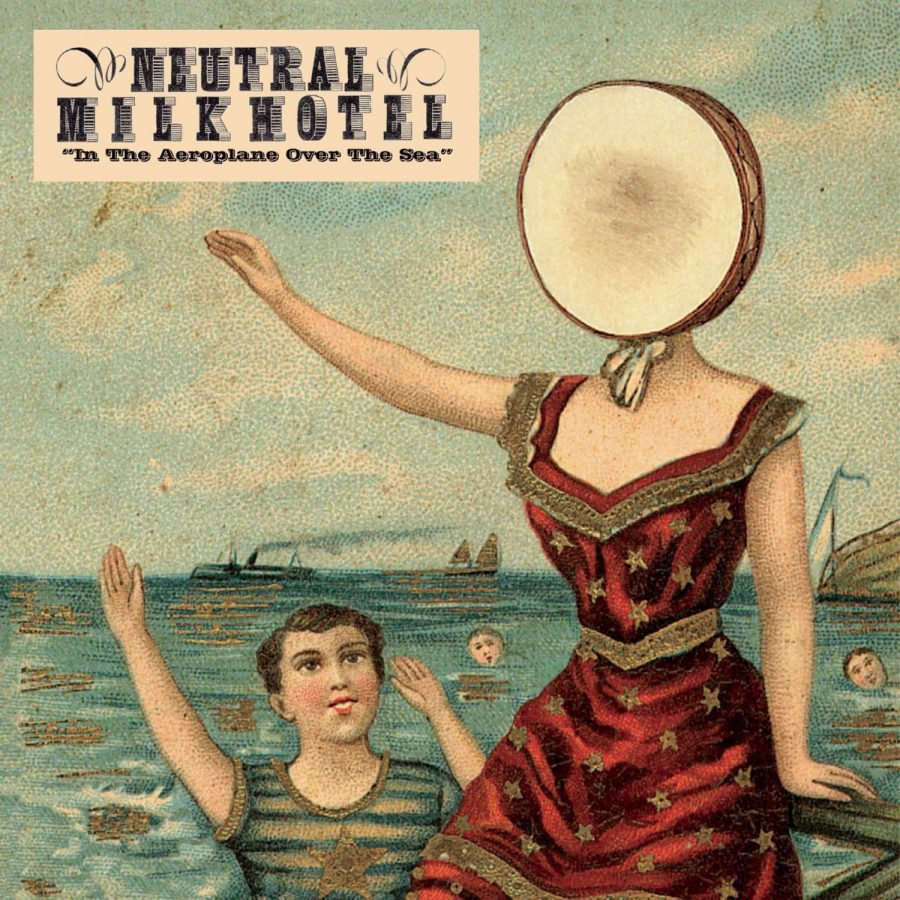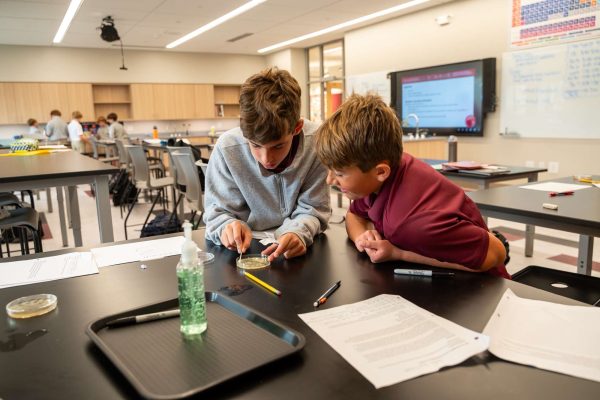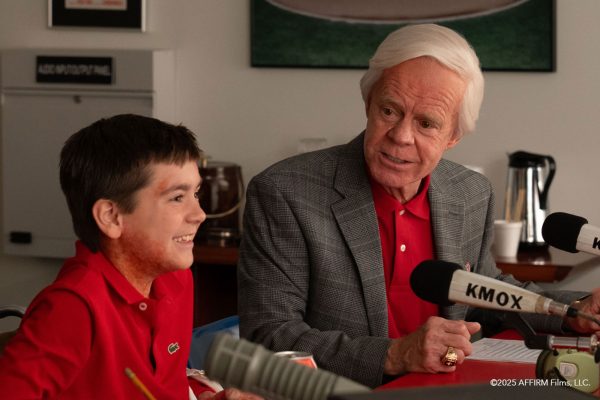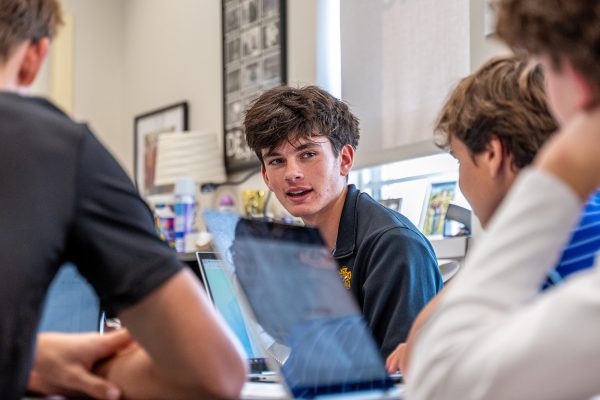Monday Music Review: In the Aeroplane Over the Sea
Neutral Milk Hotel’s second album was released 1998
In the Aeroplane Over the Sea is one of the few albums in which I truly find myself at a loss for words when describing this work of art to others. I feel like talking about this album is better suited as an essay topic in Mr. Bergman’s English class. ITAOTS, as it is abbreviated, is about as emo as music gets, and features Neutral Milk Hotel’s signature sound- purposefully sounding low quality and fuzzy. The true beauty and a full understanding of the subjects of ITAOTS may never be comprehended by my human mind, yet may someday be the inspiration of my writings yet to come.
Written almost solely by Jeff Mangum, ITATOS was released on February 10, 1998. After writing the band’s’ first album, On Avery Island, Jeff Mangum brought a different form of inspiration to his music, Anne Frank. After reading Anne Frank’s diary as a young adult, Jeff Mangum was torn apart with sadness and frustration that something so dehumanizing could be done to an innocent girl and her family (not to mention six million others). Throughout the album, Mangum shows his frustration and sadness that this genocide took place in our society, and no one seemed to do anything about it (“it’s so sad to see, the world agree that they’d rather see their faces filled with flies”).
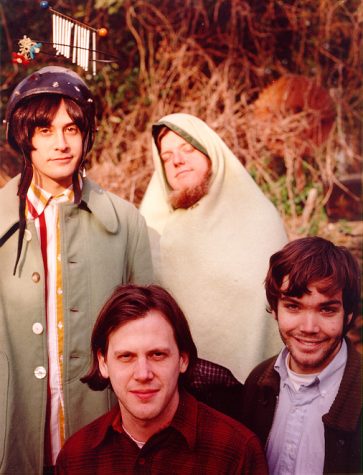
In the Aeroplane Over the Sea contains eleven songs, spanning just under 40 gracious minutes of music. The album’s opener, “King of Carrot Flowers Pt. 1,” introduces the main topic of ITOATS, affection. While the brilliant and heart warming Anne Frank references are scattered about, a continued and more prevalent theme throughout is affection shown between lovers. “King of Carrot Flowers Pts. II and III” introduces the purposely low quality and distorted sound that Neutral Milk Hotel fans have come to know and love, along with the beauty and sheer versatility of Jeff Mangum’s voice. The title track of ITAOTS comes third in the album, and is nothing but beautiful. The most well known song on a decently underground album, “In the Aeroplane Over the Sea ” is a positive tale of Jeff Mangum marveling over one’s face and the concept of being human and having a soul. “Two Headed Boy,” the simplest sounding song in the album, containing just Jeff Mangum’s beautiful voice and a guitar, may be the hardest to interpret. While the common themes of affection and Anne Frank are frequent, we don’t, and may never know who or what the “two headed boy” is. Is it a combination of young Mangum and an older, more mature Mangum, or possibly Mangum and a cassette tape? We are given time to think about this during the album’s first of two instrumentals; “The Fool.”
The sixth track of ITAOTS, “Holland, 1945,” gives us the most Anne Frank-inspired song on the album. With references like; “The only girl I ever loved was born with roses in her eyes, but then they buried her alive, one evening, 1945, with just her sister at her side,” the affection Jeff Mangum shows towards Anne Frank is almost awkward. But it’s not. Mangum wrote the album so deeply saddened by Anne Frank’s story that all he wanted to was show her the affection she deserved, and save her from the perils of the Nazi reign. This deeply inspired track is followed by “Communist Daughter,” a song that tackles the deep sorrow of loneliness. Once again, we are shown that Jeff Mangum is unafraid to write about any feeling that comes along with human sexuality. Following this short track is the longest track on the album, “Oh Comely.” Following the recurring theme of affection and sexuality, “Oh Comely” tells a story of an adulterous father. “Oh Comely” is another song on ITAOTS that is so incredibly deep that it makes it tough for a mind like mine to comprehend the full story. One thing is made obvious in “Oh Comely;” “We know who our enemies are.” This is an obvious tie back into the story of Anne Frank, our focal point throughout. A very underrated part of Mangum’s writing is his respect for all people. Even while telling dark tales of abuse and adultery, he finds a way to compliment a significant other’s beauty, something we all can learn to practice in our daily life.
“Ghost,” the ninth track on ITAOTS, went over my head twenty times before I ever knew what it meant. I’ve read dozens and dozens of articles written about this masterpiece of an album, yet it was on a Discord page where I learned the meaning of “Ghost.” Jeff Mangum’s brilliance knows no boundaries. Ghost is a story Mangum tells us from a true experience of him having a ghost in his home, yet he finds a way to relate it back to Anne Frank. He sings of knowing that a ghost is with him, an indirect reference to Anne Frank’s spirit living within him. Mangum’s lyrics are nothing short of complex, yet beautiful once the listener enlightens themselves to the meaning behind the music. Following “Ghost” is the second, and final instrumental, “[Untitled]” which blends ever so beautifully into this album. “[Untitled]” is a beautiful collage of instruments all sounding together that create a seamless intro into the last track of ITAOTS.
“Two Headed Boy, Pt. II” has such great meaning to me that I may have to hold back so that this article is a review, rather than a thesis paper. However, the beauty of “Two Headed Boy, Pt. II” is unmatched by any other song in ITAOTS, a high honor in its own right. This track is much more than another form of Mangum’s inspiration drawn from Anne Frank and her story. The basis of “Two Headed Boy, Pt. II” is a story about a family, almost positively Anne Frank’s, living in Europe in the early 1940’s. It starts with a plea, a plea to a suicidal father to stay, and be renewed by the presence of a young child that will bring out the lost inner kid in him. Following are the continued themes of Anne Frank, love and lust, mother and father relationships, and the coming and going of life. In the song’s third verse, Mangum tells us of a brother of his closest friend who committed suicide, an event that saddened Mangum even more after reading The Diary of Anne Frank. Mangum shows compassion in his lyrics; “Brother see we are one in the same,” yet gives a vivid depiction of the death of this “brother” of his. Immediately after this, Mangum sings of Anne Frank’s love and affection for Peter, and gives these characters hope for a miracle to be saved. While it is unknown to me whether Mangum identifies with Christianity, the subtheme of God is prevalent, not only in the final song of the album, but many times throughout, too. “Two Headed Boy, Pt. II” ends with sorrow, yet a possible self realization for the two headed boy; “but don’t hate her when she gets up to leave.” This plays into the broad theme of love and lust, how can you be mad at someone that left you because of your putrid treatment of them? At the end of this final track in the album, you can hear Mangum put down his guitar and stepped away from what I presume is the recording studio. I hope he bowed.
In the Aeroplane Over the Sea was the second and final album released by Jeff Mangum’s Neutral Milk Hotel. Mangum found his mental health taking a turn for the worse after the band’s tour for the album, and called for a hiatus. Very seldom has Neutral Milk Hotel toured since, yet still, the band has gained a cult-like audience. This could be for many reasons-the relatability of Mangum’s song writing, the uniqueness of the band’s sound (shoutout to the famous “singing saw”), or possibly the urge to see the band reunited live. No stone is left unturned in ITAOTS, and I find this beautiful. The most meaningful music to me is music that covers topics that we try to stay away from because showing true feelings is often viewed as “weak” or “weird” in our lives, and that is exactly why I hold such high regards for this album. Please, if you ever find yourself bored, throw on ITAOTS and discover for yourself the true beauty of Mangum’s song writing. In the Aeroplane Over the Sea is perfect, it is what happens when a musician takes a risk, and Mangum took one of the best risks ever taken by a musician, and one that may never be matched again. I just hope to God we hear him pick up that guitar again.

